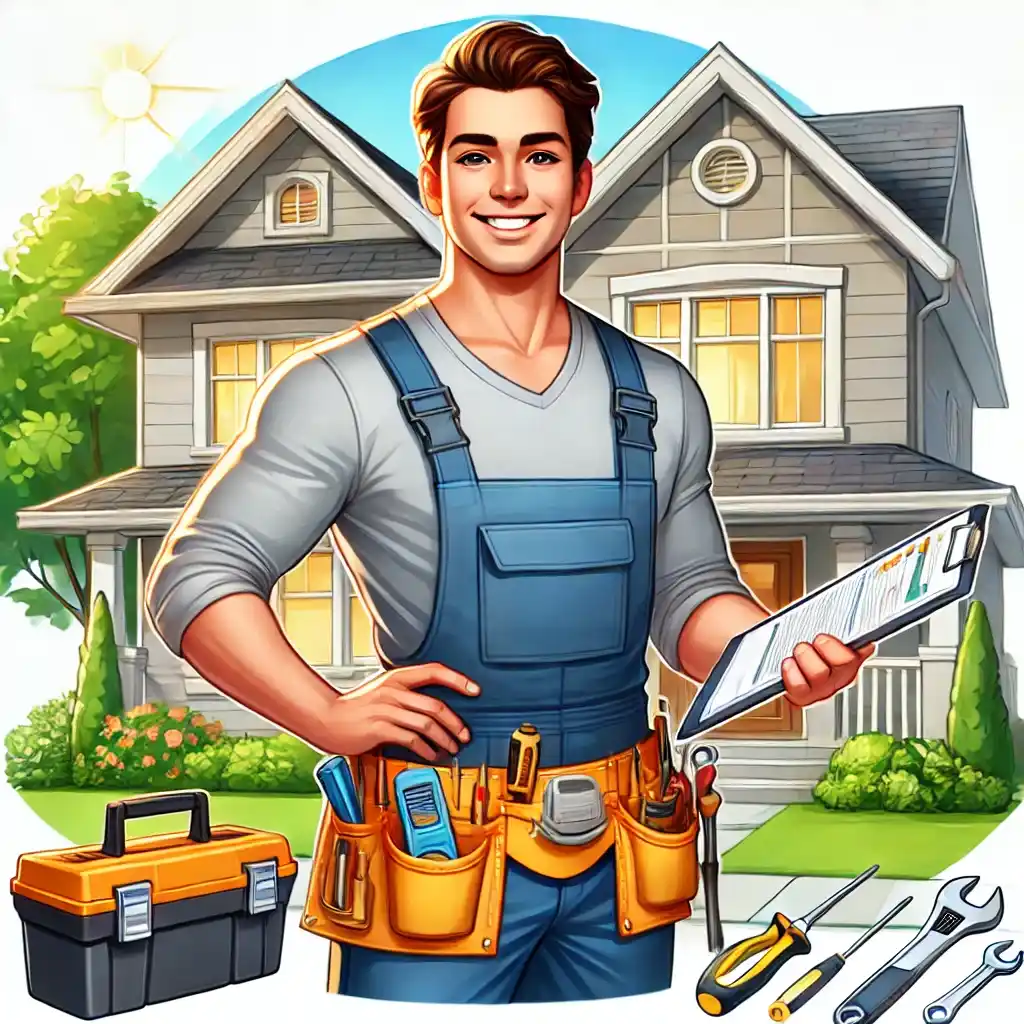DrHomey Handy Tips: Expert Advice for Maintaining Your Home

Introduction
Keeping your home in top shape requires a combination of regular maintenance, smart repairs, and proactive strategies. DrHomey Handy Tips is your go-to guide for expert advice on keeping your home safe, energy-efficient, and well-maintained throughout the year. Whether you’re a new homeowner or an experienced one, these tips will help you avoid costly repairs, enhance your home’s longevity, and maintain its value.
About DrHomey: Your Home Maintenance Expert
DrHomey is your trusted source for practical, reliable home maintenance advice. With years of experience in home repair and upkeep, DrHomey provides easy-to-follow tips that help homeowners prevent damage, improve energy efficiency, and tackle DIY projects with confidence.
Why Trust DrHomey’s Tips?
- Expert Knowledge – Backed by years of experience in home maintenance.
- Easy-to-Follow Guides – Step-by-step solutions for homeowners of all skill levels.
- Proven Techniques – Practical and budget-friendly maintenance strategies.
- Safety First Approach – Prioritizing safety in every home improvement task.
Essential Tools Every Homeowner Should Own
Must-Have Tools for Every Household
To efficiently manage household repairs, every homeowner should own the following tools:
- Screwdriver Set – For assembling and fixing furniture, appliances, and fixtures.
- Hammer – A fundamental tool for hanging frames, minor demolitions, and quick fixes.
- Adjustable Wrench – Essential for plumbing and bolt-related tasks.
- Tape Measure – Helps with accurate measurements for home improvement projects.
- Utility Knife – Useful for opening packages, cutting materials, and small repairs.
- Cordless Drill – A time-saving tool for drilling and driving screws efficiently.
Why These Tools Matter
These basic tools empower homeowners to handle minor fixes, preventing the need for expensive repairs. Regular maintenance with the right tools helps keep your home in top condition.
The Importance of Preventive Maintenance
Benefits of a Proactive Approach
- Saves Money – Prevents costly emergency repairs.
- Increases Property Value – Keeps your home attractive and functional.
- Enhances Safety – Prevents hazards like water damage, electrical faults, and pest infestations.
- Extends Lifespan of Home Components – Ensures longevity of appliances, roofs, and plumbing.
Preventive Maintenance Strategies
- Inspect your roof for leaks twice a year.
- Clean gutters regularly to prevent water damage.
- Check plumbing for leaks and fix minor drips.
- Service HVAC systems seasonally for better efficiency.
- Test smoke and carbon monoxide detectors monthly.
Energy Efficiency Tips for Your Home
Simple Upgrades for Big Savings
- Switch to LED Bulbs – Uses up to 80% less energy than traditional bulbs.
- Install a Programmable Thermostat – Reduces heating and cooling costs.
- Seal Windows and Doors – Prevents air leaks and improves insulation.
- Use Energy-Efficient Appliances – Reduces electricity consumption.
- Add Insulation – Helps maintain indoor temperatures effectively.
Long-Term Benefits of Energy Efficiency
- Lower Utility Bills – Reduces electricity and heating costs.
- Eco-Friendly Living – Minimizes carbon footprint.
- Improved Comfort – Keeps home temperature stable year-round.
Seasonal Home Maintenance Checklist
Spring Maintenance
- Inspect roof for winter damage.
- Clean gutters and downspouts.
- Check for leaks in plumbing and basement.
- Test smoke alarms and fire extinguishers.
- Service air conditioning unit.
Summer Maintenance
- Inspect outdoor spaces (patios, decks, fences) for repairs.
- Check for pest infestations and treat accordingly.
- Service lawnmowers and garden tools.
- Clean ceiling fans and AC filters.
- Pressure wash exterior walls and driveways.
Fall Maintenance
- Clean and inspect chimneys.
- Check the heating system before winter.
- Seal gaps in windows and doors.
- Clear leaves from gutters.
- Winterize outdoor faucets and pipes.
Winter Maintenance
- Check for ice dams and roof damage.
- Test home insulation effectiveness.
- Monitor heating system and replace filters.
- Keep sidewalks and driveways clear of snow.
- Inspect pipes for freezing risks.
DIY Repairs You Can Easily Handle
Fixing a Leaky Faucet
- Turn off the water supply.
- Remove the handle and unscrew the valve.
- Replace the worn-out washer.
- Reassemble and test for leaks.
Patching Small Holes in Walls
- Clean the hole and surrounding area.
- Apply spackle using a putty knife.
- Let it dry, then sand smooth.
- Paint over the patched area.
Unclogging Drains
- Pour boiling water down the drain.
- Use a plunger or a drain snake.
- Try a vinegar and baking soda mixture.
- Rinse with hot water.
Safety Tips for DIY Projects
- Always wear safety goggles and gloves.
- Turn off electricity when working with wiring.
- Use ladders safely and avoid overreaching.
- Read and follow tool manuals.
- Keep a first-aid kit nearby.
When to Call a Professional
- Electrical Work – Risk of fire or electrocution.
- Major Plumbing Repairs – Leaks and water damage can worsen.
- Roof Repairs – High-risk work requiring expertise.
- Structural Modifications – Need proper permits and skills.
Preventing and Fixing Water Damage
How to Prevent Water Damage
- Regularly check for leaks under sinks and around appliances.
- Clean and maintain gutters.
- Ensure proper drainage away from the foundation.
- Install a sump pump in flood-prone areas.
What to Do if Water Damage Occurs
- Stop the source of the leak immediately.
- Remove excess water using towels or a wet vacuum.
- Dry affected areas thoroughly to prevent mold.
- Inspect for structural damage and call professionals if needed.
Effective Pest Control Strategies
Simple Steps to Keep Pests at Bay
- Keep food sealed and dispose of garbage regularly.
- Seal cracks and gaps in walls and doors.
- Use natural deterrents like peppermint oil for rodents.
- Eliminate standing water to prevent mosquito breeding.
When to Hire a Pest Control Service
- If DIY methods fail to eliminate pests.
- When dealing with termites, bedbugs, or large infestations.
- If pests pose health risks (e.g., rodents, cockroaches, or wasps).
Long-Term Home Care Strategies
Building a Maintenance Routine
- Create a monthly checklist for regular upkeep.
- Schedule professional inspections annually.
- Keep records of repairs and maintenance tasks.
Investing in Quality
- Purchase high-quality materials for renovations.
- Use durable, energy-efficient appliances.
- Maintain a warranty for home systems.
Embracing a Proactive Mindset
- Address minor issues before they become costly repairs.
- Stay informed on home maintenance trends.
- Consider home insurance for unexpected damages.
Conclusion
Proper home maintenance is essential for a safe, comfortable, and valuable living space. By following DrHomey’s expert advice, homeowners can save money, enhance energy efficiency, and prevent costly repairs. Regular maintenance, DIY fixes, and proactive care ensure a well-kept home for years to come.






